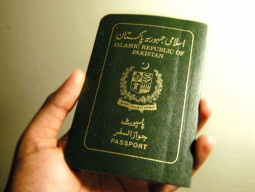But they can use it as news-gathering tool if they understand that it actually complements mainstream media, speakers said during a panel discussion on the final day of the Social Media Summit 2014 here on Sunday.
The summit, organised jointly by the Progressive Youth Forum (PYF), the Pakistan-US Alumni Network (PUAN) with the financial assistance of the US embassy attracted over 300 participants including students, Twitterati, technology experts and journalists during the two-day event.
During the panel discussion on “social media and the changing landscape of journalism,” Dawn.com’s editor Jahanzaib Haque said social media have increased the instant public scrutiny of journalists.
“We are constantly being held accountable on social media,” Haque said. “Your (the public’s) opinion sometimes even ends up shaping our news agenda.”

Even though many Pakistani journalists and news organisations have taken to social media especially Twitter for news dissemination and opinion, there are some who are still shy of technology.
“Some journalists are terrified of social media,” Haque said. “Journalism is complemented by the social media but a lot of journalists feel it is a competing force.”
He said journalists can use social media networks for news tips and for story ideas. Freelance columnist Mehr Tarar said news organisations appear to be encouraging social media’s use among their employees because they have realised their stories can reach wider audiences through social media.
The audience at the discussion seemed mostly distracted, with some nimbly working their cell phones and laptops and others chatting among themselves. Haque, who at a point had to shush the noisy crowd, tried to engage the mostly young participants.
With a show of hands, the participants suggested they trust mainstream news outlets more than the information they get from non-journalistic social media sources, after they were prodded by Haque.
University of Peshawar journalism department Chair Dr Altafullah Khan said social media has also allowed people to share and disseminate stories that otherwise lose out to other news items in the mainstream media coverage.
At different sessions during the day, experts and speakers also discussed role of the social media in helping women entrepreneurs, in storytelling and in regional cooperation.
Pakistan Software House Association President Jehan Ara said women entrepreneurs need to be trained in technology so they can bring their enterprises online.
Unlike speakers who on the summit’s opening day called for social media regulation, Ara echoed the ethos of the online world when she said state-controlled filtration and monitoring of social media are unacceptable.
Haque also said that even though there might be undesirable opinions on social media networks, blocking or censoring those opinions is not the solution.
Other participants suggested social media can be used for social advocacy and these networks should also be used to mobilize offline efforts for meaningful, positive change in society. PYF general secretary and organiser of the event Abdullah Dayo said the idea behind the summit was to gather social media users and activists together and discuss ways social media might be used to promote social change in Pakistan.
Dayo said a network of social media experts was also formed at the end of the summit.
Published in The Express Tribune, March 31st, 2014.
COMMENTS (1)
Comments are moderated and generally will be posted if they are on-topic and not abusive.
For more information, please see our Comments FAQ

1732170891-0/BeFunky-collage-(79)1732170891-0-165x106.webp)

1729234806-0/Robert-Pattinson-(2)1729234806-0-165x106.webp)

1732172357-0/BeFunk_§_]__-(18)1732172357-0.jpg)



1732169991-0/BeFunk_§_]__-(17)1732169991-0.jpg)







Combining creativity, innovation and experience - we launch channels, develop formats and make great TV. We can create content, help get it on air and reach a wider audience through our network of partners.